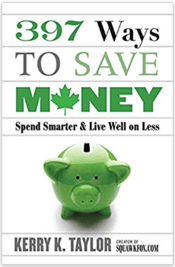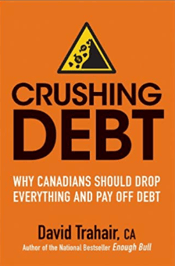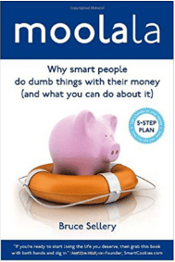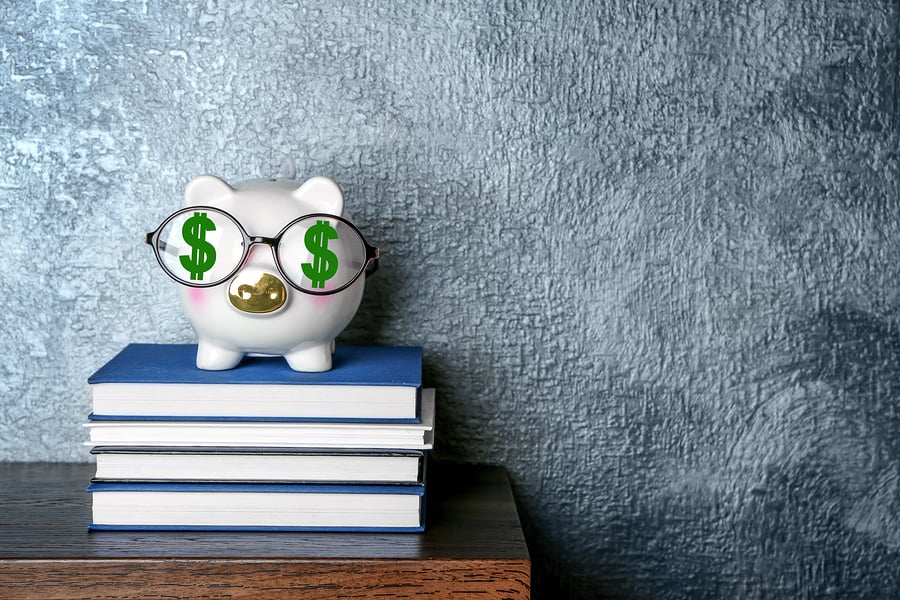
Reading is a popular pastime for many people all over the world. However, tastes in reading materials are incredibly varied. Here’s a quick question: Would you rather read a mystery novel, thriller, crime novel, or a finance book? Odds are that books on finance are at or near the bottom of your preferred reading list.
According to Statista.com even cookbooks rate higher than books on finance. Yet, with debt at over $1.70 for every dollar earned and many Canadians still having trouble managing their personal finances, it could do us all some good to give this genre another chance.
Not much of a reader or don’t have a lot of time? Many top finance books are available in audiobook format so you can listen to them while you relax, commute to work, or take care of personal errands!
What Is Personal Finance?
The basic definition of personal finance is that it’s a broad range of topics covering how you spend money, save up for retirement or other personal goals, and build your credit. It’s all of the financial topics that impact you personally.
However, personal finance is not just about how you spend your money. It goes much deeper than that. It is about discovering a financial strategy that is uniquely you — one that fits your personality, values, and goals.
That’s because if your current financial strategy isn’t working (assuming you have one), you’ll need to find a new one that suits you, otherwise you’ll be setting yourself up for failure. Just because a strategy worked for your brother, coworker, or your best friend doesn’t mean it’s right for you.
Why Is Personal Finance Important?
Personal finance is important because it helps you achieve what you want in life. It does involve understanding how much you earn versus how much you spend, but then it’s up to you to decide what you want to do with it and how to budget it.
Of course, everyone wants different things in life. You may want to simply live debt-free. You may want to save for a home, retirement, or your children’s education. Or, you may just want to travel the world.
Personal finance is important because it’s about what’s important to you. So, finding ways to brush up on this topic can be a great way to prepare for your future. This is where reading some of the best personal finance books in Canada can help.
What Personal Finance Books Should I Be Reading?
There’s a lot more to learn about how to manage your personal finances than we can fit in this blog, which is why we want to turn you on to some best books on finance for your personal life. Thankfully, these books have come a long way.
Sure, there’s still the popular Personal Finance for Dummies book to teach you the basics, but we want to talk to you about some books that could make a huge impact on your everyday life and long-term financial goals.
So without further ado, here is a list of the best Canadian personal finance books, in no particular order, and why you should read them.
Happy Go Money | Melissa Leong
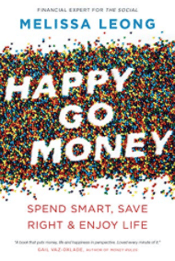 They say money can’t buy happiness, and Melissa Leong would probably agree with that! In her book finance book, this expert proves that more money in the bank doesn’t necessarily mean more happiness—but you must be smart about your spending and saving.
They say money can’t buy happiness, and Melissa Leong would probably agree with that! In her book finance book, this expert proves that more money in the bank doesn’t necessarily mean more happiness—but you must be smart about your spending and saving.
Happy Go Money combines happiness psychology and personal finance, and shows you how to get the most delight out of every dollar — making this one of the best Canadian personal finance books for people who need help finding the motivation to stick to a budget (and feeling positive about their financial outlook).
Connect with Melissa on LinkedIn
Worry-Free Money | Shannon Lee Simmons
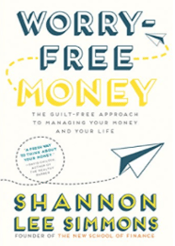 The founder of the popular New School of Finance, financial planner Shannon Lee Simmons has met with thousands of clients and has come to realize that most people feel broke, no matter what their income.
The founder of the popular New School of Finance, financial planner Shannon Lee Simmons has met with thousands of clients and has come to realize that most people feel broke, no matter what their income.
To address this, Worry-Free Money takes a different approach to finances, looking at the root causes of the pressure to spend, understanding why you overspend, and how to have fun while getting your money under control. This is one of the best books on finance for helping build your confidence (and your financial plans).
Connect with Shannon on LinkedIn
Cashflow Cookbook | Gordon Stein
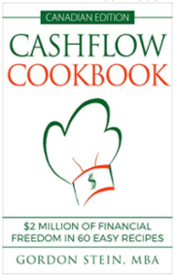 Like cooking? Then you’ll love Gordon Stein’s Cashflow Cookbook. Mr. Stein uses ingredients, cooking, and recipes as metaphors to demonstrate how you can grow your money if you “simmer spending, deglaze debt, noodle some net worth, and toss out toxic ingredients.”
Like cooking? Then you’ll love Gordon Stein’s Cashflow Cookbook. Mr. Stein uses ingredients, cooking, and recipes as metaphors to demonstrate how you can grow your money if you “simmer spending, deglaze debt, noodle some net worth, and toss out toxic ingredients.”
If any of this sounds familiar, perhaps you’ve seen portions of the book in the Toronto Star, where excerpts are frequently featured because it’s one of the best finance books for explaining money issues! Be warned: Readers might get a bit hungry for addressing their money issues after reading this one.
Connect with Gordon on LinkedIn
397 Ways to Save Money | Kerry K. Taylor
This finance book begins with the controversial statement, “renting can make you rich,” and goes on from there! Journalist Kerry K. Taylor’s 397 Ways to Save Money is packed with practical tips on saving.
She takes you from room-to-room in your “financial house” to give you fantastic and creative ideas for saving money. Ms. Taylor goes on to show how thinking differently than most people can lead to savings. If you’re looking for the best financial books to help you cut costs in your life, this is definitely a top choice!
Connect with Kerry on LinkedIn
Wealthing Like Rabbits | Robert R. Brown
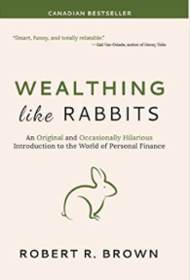 Odd title for a book, right? Especially because rabbits breed quickly, while money tends to grow slowly. "Hold up," says author Robert R. Brown. The secret to accumulating money quickly is to get compound interest working for you.
Odd title for a book, right? Especially because rabbits breed quickly, while money tends to grow slowly. "Hold up," says author Robert R. Brown. The secret to accumulating money quickly is to get compound interest working for you.
In Wealthing Like Rabbits, Robert provides sound financial advice to the younger set. One of his first pieces of advice? Quit trying to keep up with the Joneses! “The Joneses probably aren’t as well off as they look,” he writes. “...beneath the imitation wealth and artificial happiness, there is often a lot of very authentic debt and stress.”
This can be an important lesson for people of any age, as wasting money on keeping up appearances can be a massive drain on your resources. This is one of the best finance books for giving yourself a wakeup call and learning how to save for your future.
Connect with Robert on LinkedIn
How to Pay Less and Save More for Yourself | Rob Carrick
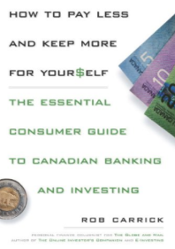 Journalist Rob Carrick wrote How to Pay Less and Save More for Yourself ten years ago but this book is just as valuable today as it was then! It begins by warning that the financial industry is set up to make money off of you. Then, using a quiz, Rob measures how comfortable you are with the technology of electronic transactions.
Journalist Rob Carrick wrote How to Pay Less and Save More for Yourself ten years ago but this book is just as valuable today as it was then! It begins by warning that the financial industry is set up to make money off of you. Then, using a quiz, Rob measures how comfortable you are with the technology of electronic transactions.
The rest of the book gives advice based on how you fall on the technology “smarts” scale. Rob’s point is if you blindly trust your bank, you may end up losing a lot of money. This tome makes our list of the best finance books because of how well the advice within has stood the test of time.
Connect with Rob on LinkedIn
Victory Lap Retirement | John Chevreau & Michael Drak
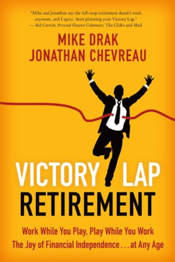 Victory Lap Retirement is written by journalist Jon Chevreauand financial services industry veteran Michael Drak. Jon describes the “victory lap” as a mix of work and leisure. If you’re looking to get out of the “rat race,” then this is one of the best finance books you could pick up.
Victory Lap Retirement is written by journalist Jon Chevreauand financial services industry veteran Michael Drak. Jon describes the “victory lap” as a mix of work and leisure. If you’re looking to get out of the “rat race,” then this is one of the best finance books you could pick up.
His secret is to save enough for your basic needs — then work as much as you want for additional needs. He also urges readers to create a life from which they don’t have to retire.
Connect with Jon on LinkedIn | Connect with Michael on LinkedIn
The Wealthy Barber | David Chilton
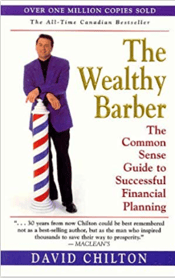 If you are looking for a comprehensive book on personal finance that will hold your interest from cover to cover, The Wealthy Barber by David Chilton is for you. While best read at a young age, it will appeal to all readers.
If you are looking for a comprehensive book on personal finance that will hold your interest from cover to cover, The Wealthy Barber by David Chilton is for you. While best read at a young age, it will appeal to all readers.
This self-published book has become one of the best-selling Canadian finance books of all time. It features a barber named Roy who makes people financially successful by cutting their hair once a month while delivering a lesson in investing and financial planning — combining an interesting storytelling framing device with practical financial advice.
Connect with David on Twitter
Crushing Debt | David Trahair
Crushing Debt: Why Canadians Should Drop Everything and Pay Off Debt begins with how author and North York accountant David Trahair fell deeply into consumer debt—and then made his way out. From there, the book takes a step-by-step look at the various services that can help you get out of debt.
Especially impressive is David’s invitation to readers to “get in touch with him.” His advice to readers: Get out of debt in order to weather the coming financial storm. If you’re interested in learning more about debt and how to pay it off, this is one of the best finance books to pick up.
Connect with David on LinkedIn
The Smart, Savvy Young Consumer | Pat Foran
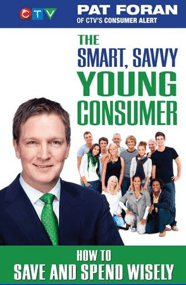 The Smart, Savvy Young Consumer is ideal for “people 14-34,” so it’d make a great graduation gift for a young person just starting out of high school or college. This finance book can be read selectively on topics that interest the reader and it has a handy glossary at the end to help you learn more about key terms used in the book.
The Smart, Savvy Young Consumer is ideal for “people 14-34,” so it’d make a great graduation gift for a young person just starting out of high school or college. This finance book can be read selectively on topics that interest the reader and it has a handy glossary at the end to help you learn more about key terms used in the book.
Foran obviously knows his target audience, as he comments on things like iTunes, Netflix, Starbucks, McDonald’s, and beer throughout. He also throws in a wide range of quotes from people like Justin Beiber, Jim Flaherty, and many others.
Connect with Pat on LinkedIn
Talk Money to Me | Kelley Keehn
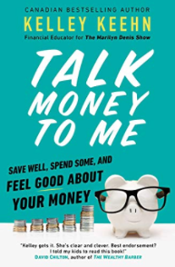 Kelley Keehn asks the questions you’ve been thinking, like, why do you know more about what goes on in your friend’s bedroom than in their bank account? How many of your colleagues are traveling the world while sitting on student loans? And are your parents going to leave you a legacy?
Kelley Keehn asks the questions you’ve been thinking, like, why do you know more about what goes on in your friend’s bedroom than in their bank account? How many of your colleagues are traveling the world while sitting on student loans? And are your parents going to leave you a legacy?
In her tenth book, Talk Money to Me, Kelley provides some straight talk about money as she covers how to build good credit, invest, talk to your partner about finances, save for a mortgage, and the importance of splurging once in a while.
Connect with Kelley on LinkedIn
Capital Compounders: How to Beat the Market and Make Money Investing in Growth Stocks |Robin R. Speziale
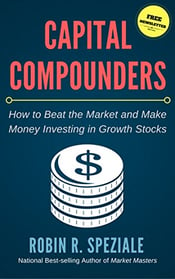 Here’s one that was recommended to us by one of our blog readers.
Here’s one that was recommended to us by one of our blog readers.
Wondering how to make your money work for you in the stock market? Robin R. Speziale walks his readers through his personal journey in building a $300,000 stock portfolio in this best-selling finance book.
Join Robin as he explains what the “market-beating” capital compounder growth stocks have in common, shares examples of stocks that have a high return on investment (ROI), and informs you about how to pick winning stocks.
If you’re interested in investing, then this might be one of the best finance books for you to read.
Connect with Robin on LinkedIn
Moolala | Bruce Sellery
Moolala author Bruce Sellery has developed what he calls the “Moolala Method.” The 5-step plan involves laying a foundation, determining what you want, developing a plan, taking action, and staying engaged. This, he says, will get you where you want to be!
Bruce also owns a personal finance training company, and was inspired to write his book based on the stories of his workshop participants. His book includes testimonies from the workshops to give you insight into the financial struggles and successes of others.
Update: In addition to writing one of the top finance books, he is now the CEO of Credit Canada.
Connect with Bruce on LinkedIn
Free Non-profit Expertise to Help Ease Your Financial Struggles
These 12 books are some of the best personal finance books out there. They provide practical ideas on how to manage your personal finances and build a sound financial footing. Some of these books go further and provide you with concepts and thinking patterns that can help you develop your own strategies for financial success.
Want more good finance reading? Be sure to check out our blog post, The 15 Best Personal Finance Blogs You Should Be Following. And, as always, if you or someone you care about is struggling with their finances, call Credit Canada at 1.800.267.2272 for free, expert advice from caring Debt Counsellors that is 100% confidential and non-judgmental.
Frequently Asked Questions
Have a question? We are here to help.
What is a Debt Consolidation Program?
A Debt Consolidation Program (DCP) is an arrangement made between your creditors and a non-profit credit counselling agency. Working with a reputable, non-profit credit counselling agency means a certified Credit Counsellor will negotiate with your creditors on your behalf to drop the interest on your unsecured debts, while also rounding up all your unsecured debts into a single, lower monthly payment. In Canada’s provinces, such as Ontario, these debt payment programs lead to faster debt relief!
Can I enter a Debt Consolidation Program with bad credit?
Yes, you can sign up for a DCP even if you have bad credit. Your credit score will not impact your ability to get debt help through a DCP. Bad credit can, however, impact your ability to get a debt consolidation loan.
Do I have to give up my credit cards in a Debt Consolidation Program?
Will Debt Consolidation hurt my credit score?
Most people entering a DCP already have a low credit score. While a DCP could lower your credit score at first, in the long run, if you keep up with the program and make your monthly payments on time as agreed, your credit score will eventually improve.
Can you get out of a Debt Consolidation Program?
Anyone who signs up for a DCP must sign an agreement; however, it's completely voluntary and any time a client wants to leave the Program they can. Once a client has left the Program, they will have to deal with their creditors and collectors directly, and if their Counsellor negotiated interest relief and lower monthly payments, in most cases, these would no longer be an option for the client.
Budget Calculator
Try out our Budget Calculator to see how much you can save per month!



